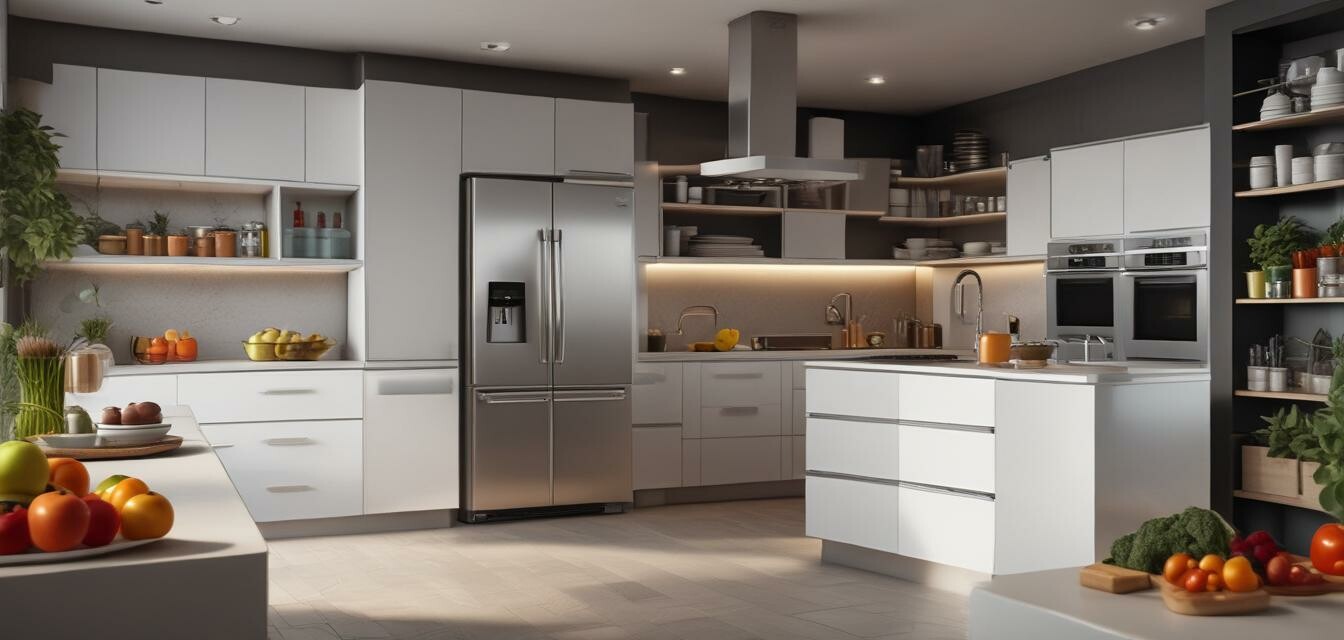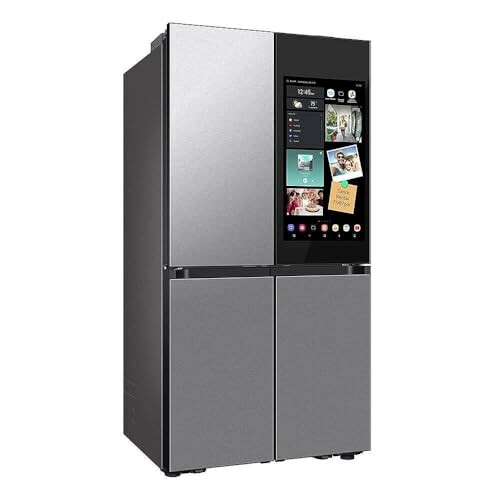
The Future of Smart Refrigerators in 2025
Key Takeaways
- Smart refrigerators will increasingly integrate AI-powered features for better food management.
- Energy efficiency will become a standard feature, with smart appliances optimizing energy use.
- Enhanced connectivity with other smart kitchen devices will streamline the cooking and grocery shopping process.
- Design trends will focus on minimalism and functionality while maintaining aesthetic appeal.
- Consumer demands for sustainability will drive the development of eco-friendly materials and practices.
Introduction
As we move into 2025, the evolution of smart refrigerators is set to transform how we manage food and energy in our kitchens. With advancements in technology, these appliances are becoming more sophisticated, offering features that enhance convenience and efficiency. This article takes a closer look at the emerging trends in smart refrigerators and how they are revolutionizing the kitchen landscape.
The Rise of AI in Smart Refrigerators
Artificial intelligence (AI) is playing a pivotal role in the development of smart refrigerators. By utilizing AI, these appliances can offer the following functionalities:
- Food Inventory Management: Automatically keep track of what items are in the fridge, sending notifications when stocks are low.
- Recipe Suggestions: Based on available ingredients, smart refrigerators can suggest recipes.
- Expiration Alerts: Notify users of food items nearing their expiration dates, helping reduce food waste.
Advantages of AI Integration
AI offers several advantages, especially for busy households. By simplifying meal planning and grocery shopping, it saves time and helps families eat healthier. With the ability to connect to grocery delivery services, users can reorder items with just a few taps on their smartphones.
Energy Efficiency Features
Moving towards sustainability, smart refrigerators are embracing energy-efficient technologies. Here are some features that showcase this trend:
| Feature | Benefit |
|---|---|
| Adaptive Cooling Systems | Optimizes energy use by adjusting temperatures based on the contents and environmental conditions. |
| LED Lighting | Uses less energy compared to traditional lighting while providing better visibility. |
| Inverter Technology | Adjusts compressor speed for efficient cooling performance, reducing energy consumption. |
Smart Refrigerator Examples
SAMSUNG RF29DB9900QD Smart Refrigerator
This refrigerator features advanced technologies to keep your food fresh and at the ideal temperature.
Learn MoreConnectivity with Other Smart Devices
In the modern kitchen, connectivity is key. Smart refrigerators can communicate with other smart appliances, creating a seamless cooking experience. Key functionalities include:
- Smart Ovens: Coordinate cooking times and temperatures based on what’s inside the refrigerator.
- Mobile Apps: Manage and monitor the refrigerator remotely, checking inventory or changing settings from anywhere.
- Voice Control: Utilize smart assistants like Alexa or Google Assistant to manage the fridge hands-free.
Design Trends for 2025
The aesthetics of smart refrigerators are just as important as their functionalities. In 2025, we anticipate seeing:
- Sleeker Designs: Minimalistic styles that blend in with kitchen decor.
- Innovative Finishes: Options like matte black, brushed gold, and stainless steel that appeal to modern tastes.
- Touchscreen Interfaces: More appliances will feature integrated touchscreens for easy access to recipes, calendars, and notes.
Popular Brands and Innovations
Leading brands are at the forefront of these trends. Companies like Samsung and LG are consistently pushing the envelope with innovative solutions in their smart refrigerators. The features they provide are not just about utility—they're about enhancing the cooking experience.
Conclusion
Smart refrigerators are set to become a cornerstone of our kitchens in 2025. They will not only simplify food management but also align with our growing demands for energy efficiency and connectivity. As technology continues to evolve, we can expect these appliances to offer even more innovative features, enhancing both convenience and sustainability.
Pros
- Enhanced food management capabilities.
- Improved energy efficiency features.
- Seamless connectivity with other devices.
- Stylish designs that fit modern aesthetics.
Cons
- Potential for higher initial costs.
- Dependence on internet connectivity for smart features.
- Ongoing software updates may be required.
Learn More
If you're interested in learning about other high-tech appliances that are transforming kitchens, continue exploring our other resources:
